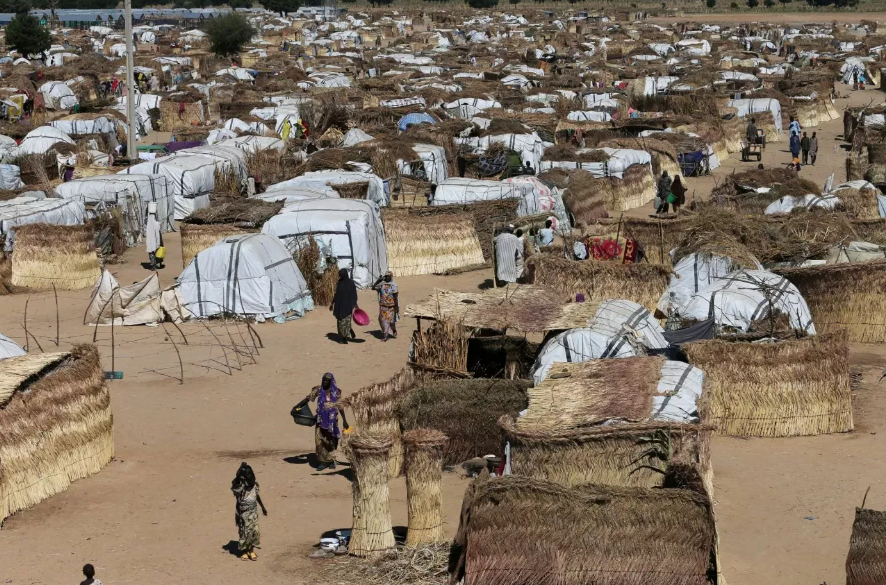The Taiye Olayemi Networks for Human Rights, Social Justice, Development and Empowerment (TONHR) has called for an improved resettlement process for terrorism victims.
The civil society organisation argued that the current resettlement plan of the federal and state governments significantly lacks concrete rehabilitation plans and the reorientation necessary for communal living for beneficiaries.
Expressing concern, it urged the government to step up efforts to ensure the safety and proper reintegration of individuals affected by the prolonged terrorism crises that have devastated Borno State for years.
The federal government through the National Emergency Management Agency (NEMA), recently began resettling internally displaced persons (IDPs) from eight local government areas who had been taking refuge in Borno’s Muna Garage IDP camp.
The camp is being closed by the state government to allow for proper integration of the affected people back into society.
TONHR’s founder, Taiye Olayemi, in a statement on Thursday, June 13, 2024, said his organisation appreciated the government for supporting the Borno State Government with food items to facilitate the resettlement of IDPs but noted some gaps in the process.
According to Mr Olayemi, reports in national newspapers state that approximately 12,985 individuals, comprising 4,880 male heads of households, 1,230 female heads of households, 6,875 married women, and other family members, are slated for resettlement across nine LGAs.
“In the first phase, resettlement focuses on communities in six LGAs: Bama, Konduga, Gwoza, Kukawa, Jere, and Ngala.
“It was stated that each of the 4,880 male heads of households and 1,230 female heads of households received N100,000, while about 6,875 married women received N50,000 each in cash.
“The following were approved items added to this intervention; 35,531 bags of rice, 27,865 bags of beans, 24,736 bags of maize, 2,501 kegs of vegetable oil, 2,025 cartons of tomato paste, 1,614 cartons of seasoning cubes, and 837 bags of iodized salt,” he said.
He noted that despite the government’s commendable efforts to reduce the number of IDP camps, it is crucial to acknowledge that these individuals have endured numerous traumatic experiences during their displacement.
“Therefore, it is imperative to establish a comprehensive and structured framework for resettlement to restore a sense of harmony, stability, and communal cohesion for these affected populations.
“This will enable them to rebuild their lives with dignity and foster a spirit of unity and resilience within their communities,” he said.
TONHR advocated a comprehensive psychosocial support program to assist returnees in coping with trauma and fostering mental well-being.
The group also called for the equipment and enhancement of Primary Health Care facilities with modern medical equipment, drugs and adequate supplies to ensure high-quality healthcare services for the returnees.
“Develop and provide access to basic education, vocational training, and creative learning resources for children and youth, addressing the educational disruptions caused by prolonged violence and displacement.
“Establish community guidance and counselling centres to facilitate reintegration, offering support in areas such as conflict resolution, community building, and social cohesion.
“Initiate livelihood programs that provide returnees with the skills and resources needed to rebuild their lives, including vocational training, small business support, and agricultural development,” it added.
Saying that the government should ensure adequate housing and infrastructure development to provide safe and secure living conditions for the resettled families, the group called for the promotion of gender-sensitive approaches in all resettlement activities, ensuring that the specific needs of women and girls are addressed, including protection against gender-based violence.


